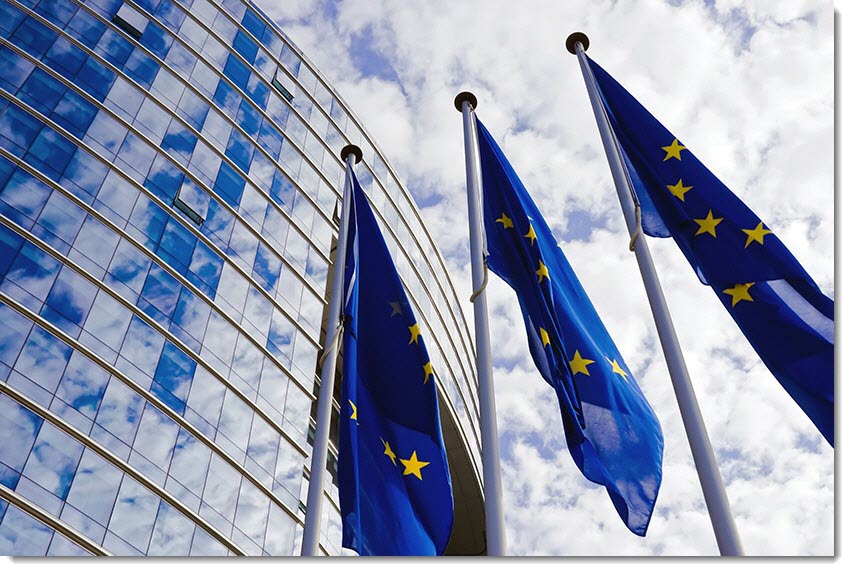
02/04/2024
EU Insight, 28 March 2024
Brussels, 28 March 2024
COMMISSION AND COUNCIL MOVE ON AGRICULTURAL POLICIES
The Council endorsed revisions to the common agricultural policy, aiming to balance environmental objectives with farmer needs. The revision comes in light of recent discontent voiced by farmers across the EU, and thus aims to reduce bureaucratic burden in relation to Green Deal policies affecting agriculture. Amongst others, the revision includes temporary exemptions for unforeseen climate events and relaxes standards on soil protection and crop rotation. In relation, the European Commission is tightening the screws on Russian and Belarusian grain imports with a proposed 50% tariff hike. This measure aims to limit illegally sourced Ukrainian grain from entering the EU market, and thus protect EU agricultural production as well as Ukrainian suppliers.
COUNCIL APPROVES VOLUNTARY GAS CONSUMPTION REDUCTION MEASURES
EU Ministers formally greenlit the extension of gas demand-reduction measures, originally introduced in 2022 at the height of the energy crisis. Overall, the measures encourage Member States to reduce their gas consumption by at least 15% until 31 March 2025. Thus far these measures have helped decouple the EU’s reliance on Russian gas while promoting a shift in the energy transition. Despite this, the Commission considers that global gas markets remain susceptible to instability and disruptions, thus recommending the extension of the demand reduction measures. In addition to protecting supplies for next winter, the measures aim to bridge the gap until other related energy legislation applies in early 2025 to further foster the move away from Russian gas reliance.
COMMISSION PUBLISHES GUIDELINES TO ENSURE ELECTORAL INTEGRITY
In anticipation of the upcoming EU elections, but also applicable beyond, the Commission unveiled guidance for Very Large Online Platforms and Search Engines aiming to address systemic online risks which could compromise electoral integrity. These platforms and search engines are defined under the Digital Services Act as platforms exceeding 45 million EU users. The Commission’s recommendations include fortifying internal protocols, tailoring risk mitigation strategies, tackling challenges posed by generative AI, and fostering partnerships with authorities and civil society entities. Additionally, the guidelines underscore the importance of proactive incident response mechanisms, conducting thorough post-election evaluations, as well as placing particular emphasis on cross-border risks.
COUNCIL STRENGTHENS PROTECTION OF FOOD AND DRINKS’ GEOGRAPHICAL INDICATION
The Council formally adopted a regulation aiming to enhance the existing EU’s geographical indications system. Overall, the system protects intellectual property rights for wine, spirit drinks, and agricultural products in relation to their specific qualities and area of production. Examples of protected goods are Champagne, Queso Manchego and Polish Vodka. Moving forward, as a result of the new rules, the registration process for these products should be simplified, while their protection online including in domain names should be strengthened. Additionally, the new rules aim to empower producer groups, allowing Member States to designate recognized producer groups who would then hold exclusive rights in relation to GI recognised products.
COMMISSION PRESENTS PLANS FOR A JOINT EUROPEAN DEGREE
The Commission adopted a package of proposals to establish a European degree, aiming to enhance transnational cooperation in higher education. Said initiative underpins the Commission’s ambition of fostering a European education union, building upon the success of the flagship Erasmus+ programme. The package includes a blueprint for a European degree, outlining a path for EU countries and EU universities and other higher education institutions to develop and adopt a qualification which would be automatically recognised throughout the Union. Via this initiative the Commission aims to foster the development of a European identity, as well as equipping graduates with future-proof skills, and facilitating recruitment for employers.
COMING UP NEXT WEEK
- 3 – 4 April: Informal meeting of transport ministers
- 4 – 5 April: EU-US Trade and Technology Council
Karl Isaksson, Managing Partner Brussels, Kreab
_________________________________________________________
Kreab • Tel: +32 2 737 6900 • karl.isaksson@kreab.com • www.kreab.com/brussels • X: @KreabEU • LinkedIn: Kreab Worldwide
